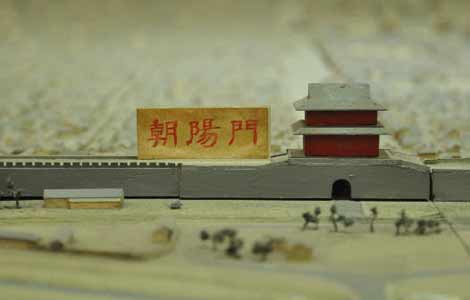Securing a strong partnership
Updated: 2013-08-28 07:55
By Ruan Zongze (China Daily)
|
|||||||||||
Decade of close cooperation between China and ASEAN paves foundation for good-neighborly relations for the future
On Thursday, the foreign ministers of China and member states of the Association of Southeast Asian Nations will hold a special meeting in Beijing to celebrate the 10th anniversary of the establishment of the China-ASEAN strategic partnership. The agenda will focus on how to deepen the bilateral strategic partnership.
The Asian financial crisis of 1997 led China and the members of ASEAN to realize the importance of deepening cooperation to jointly confront challenges, and China and ASEAN signed the Joint Declaration on Strategic Partnership for Peace and Prosperity in 2003 in Bali, Indonesia.
China is the top trading partner of ASEAN, while ASEAN ranks as China's third-largest trading partner. Bilateral trade has grown from $55 billion in 2002 to more than $400 billion last year, and according to the Chinese Ministry of Commerce, the first half of 2013 saw a year-on-year growth of 12.2 percent that totaled more than $210 billion. Also, by the end of June, Chinese direct investment in ASEAN countries totaled nearly $30 billion, and the mutual investment is now more than $100 billion.
As Chinese Foreign Minister Wang Yi has pointed out, China and ASEAN are trailblazers and have set a number of historical records. China was the first to sign the Treaty of Amity and Cooperation in Southeast Asia, the first to establish a strategic partnership with ASEAN, and the first to start negotiations on a free trade area with ASEAN, which would be the biggest free trade area in the developing world. China is also the only country to hold fairs with ASEAN every year. The two sides have close contacts at all levels, having set up 12 ministerial meeting mechanisms and conducted mutually beneficial cooperation in more than 20 fields.
China attaches great importance to its relations with ASEAN member states, and it will continue to support ASEAN's growth, as well as the establishment of the ASEAN community.
Over the past 10 years, the China-ASEAN strategic partnership has borne fruit and demonstrated remarkable resilience in the face of a series of crises: from the outbreak of SARS in China, the Indian Ocean earthquake and tsunami, to China's Wenchuan earthquake. The past 10 years have laid a solid foundation for the development of bilateral relations in the coming decade.
To upgrade their strategic partnership, it is important for both sides to concentrate on seeking new ways of thinking and solutions to tackle their disagreements. In particular, all parties concerned should seek to enhance mutual understanding and trust, to consolidate the political foundation for regional cooperation. The East Asia Summit and the informal economic leaders' meeting of the Asia-Pacific Economic Cooperation forum are scheduled for October, and China and ASEAN should use them to enhance their cooperation.
To upgrade the China-ASEAN FTA, both sides have to further open their markets to each other and promote the free flows of goods and services. It is necessary to set up a financial platform for Asia's infrastructure development and to solve the financing bottleneck problems in the region.
Aside from economic cooperation, China and ASEAN should deepen cooperation in a wide range of fields. For instance, although the Asia-Pacific region as a whole remains stable, some non-traditional security issues persist, which are negatively affecting the regional situation, economic growth and people's livelihoods. The risks of earthquakes, tsunamis, and typhoons command concerted efforts from all parties concerned.
In response to the relentless attempt of some individual parties in the region and some external forces to complicate and escalate the South China Sea disputes, China is determined to defend regional peace and stability, and always insists on solving the historical issues through negotiation and consultation. By carrying out concrete maritime cooperation and making good use of the China-ASEAN Maritime Cooperation Fund, China and ASEAN can create the conditions and atmosphere necessary for solving maritime disagreements through cooperative means.
In early April, China National Offshore Oil Corporation and Brunei's national petroleum company known as PetroleumBrunei signed a cooperation agreement to deepen cooperation in the oil and gas sector. The commercial move could possibly facilitate common development of the resource-rich waters and serve as an attempt to resolve the maritime territorial dispute.
Equally important, China and ASEAN should encourage non-governmental exchanges at all levels, especially people-to-people exchanges, in a bid to enhance mutual understanding and cement the foundation of public support for the good-neighborly China-ASEAN relations for the next decade.
The author is deputy director of China Institute of International Studies.
(China Daily 08/28/2013 page8)
Today's Top News
Sino-Japanese meeting at G20 ruled out
Japan coast guard seeks more money
Party's plenum to focus on reform
Industrial sector's profit picture brightens
Rich Chinese eye overseas properties
New time limits for visa processing
China joins global effort to combat tax evasion
Chinese negotiator in DPRK
Hot Topics
Lunar probe , China growth forecasts, Emission rules get tougher, China seen through 'colored lens', International board,
Editor's Picks

|

|

|

|

|

|





